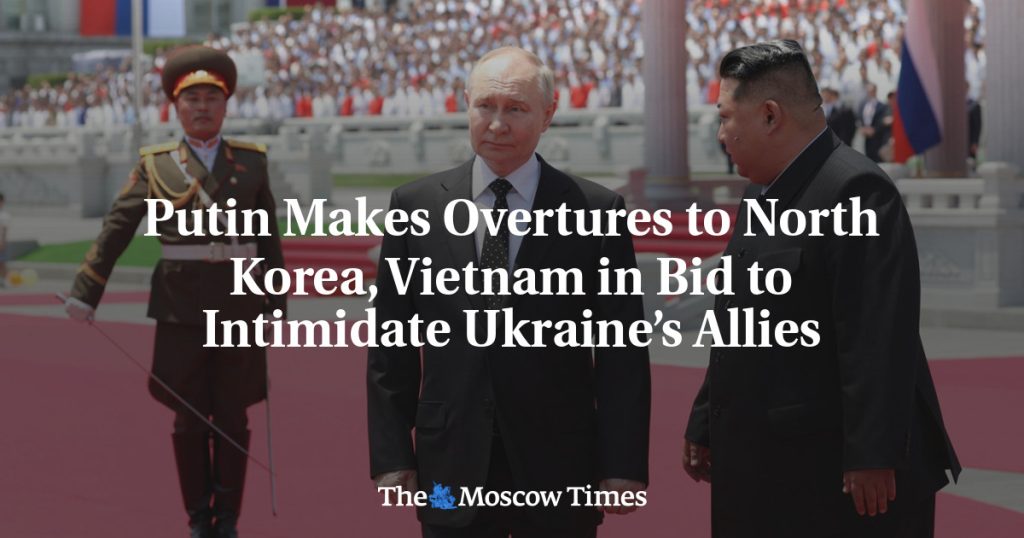President Vladimir Putin signed a military partnership deal with North Korea and visited U.S. business partner Vietnam in an attempt to intimidate Ukraine’s Western allies and demonstrate that he is not as isolated on the world stage as they would like. Putin has expressed outrage at the West for authorizing Ukraine to use long-range weapons, supplying fighter jets to Kyiv, and refusing to make concessions to the Kremlin. Russian officials close to the military have indicated that Russia will respond with force, signing a treaty with North Korea as a symbolic and practical move to counter Western actions.
The partnership agreement with North Korea, which includes a mutual defense clause, signals a significant shift in Moscow’s relations with Pyongyang, which have been strained since the Soviet collapse. Despite traditionally supporting Seoul over Pyongyang, Russia’s isolation due to the invasion of Ukraine has prompted a change in its foreign policy approach. The signing of the treaty is seen as a critical blow to relations with South Korea and Japan, as Russia aligns itself with North Korea’s aggressive stance on global politics.
Putin’s visit to Vietnam, a U.S. partner where Russia has joint oil and gas projects, is primarily symbolic in nature. Russia’s presence in Vietnam dates back to the Soviet era, with state oil company Zarubezhneft operating in the region. However, geopolitical factors, such as China’s claims in the South China Sea, have complicated Russia’s plans for offshore development in Vietnam. While trade between the two countries is not significant, Vietnam has been an active participant in Russian foreign policy initiatives, including the EAEU-Vietnam free trade zone.
The former employee of a Russian state-controlled oil and gas company operating in Vietnam blamed Washington for the breakdown of large-scale agreements with Hanoi, claiming pressure on Vietnam from the U.S. Despite the relatively low trade volume between Russia and Vietnam, the two countries have maintained a partnership, with Russia being Vietnam’s main arms supplier. Hanoi’s decision to ignore U.S. protests over Putin’s visit likely represents the extent of its willingness to confront the U.S., with any agreements made during the visit likely to remain confidential.
The overarching goal of Russia’s strategy, as expressed by a government official, is to achieve the best results on the battlefield by creating partnerships in regions that are challenging for Western countries. The military partnership with North Korea and Putin’s visit to Vietnam are seen as signals to the U.S. and other nations that Russia is capable of forming alliances in areas that are uncomfortable for its adversaries. The move is viewed as a response to the actions of Western countries in regions such as Ukraine, Syria, and Armenia. The ongoing geopolitical maneuvers are part of Russia’s broader efforts to counter Western influence and assert its position on the global stage.















